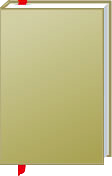

 |

|

The average rating for What is education? based on 2 reviews is 3.5 stars.
Review # 1 was written on 2015-06-19 00:00:00 James Gaugs James GaugsI enjoyed this book overall and gained from it what I was looking for -- detailed application ideas for Holt's approach to education. I'm glad this wasn't the first book of Holt's I read, and I probably wouldn't recommend it to others to read first, either. Much of it can get tedious with the detailed descriptions he provides of specific ideas, but the detail is good because it gives an immersive understanding of what exactly Holt envisions, precisely what changes he might make and what approaches he might take in a classroom setting. Many thoughts could be applied at home as well. Throughout the book are also many insightful, thought-provoking statements, which I've come to expect from Holt. I don't agree with everything I read, but there's a lot that's good. I definitely gained a better understanding, and I appreciate Holt's thoughtful consideration of what children really need from parents and teachers. |
Review # 2 was written on 2020-03-26 00:00:00 Tim Zimmel Tim ZimmelI agree with other reviewers--probably wouldn't start here if you're new to Holt. But he's always a thought-provoking read. Here he draws from George Dennison, The Lives of Children: The Story of the First Street School, Frances Hawkins, Paul Goodman, and others, arguing for learning as an autonomous enterprise driven by the child. His thoughts on high-stakes testing are incisive, so I will quote them here. Keep in mind, this was written fifty years ago: Many teachers in California, for example, have complained about all the tests that the state legislature is forcing them to give their pupils. I say, "I agree with you that this is bad. But where did the idea come from in the first place that learning could be measured with numbers? Did a legislator think it up? No, so-called educators developed these ideas, and sold them to the public and their legislators, and if we think this is all a lot of harmful nonsense, it's our duty to do all we can to unsell it." In the article, "Why We Need a New Schooling," which I wrote for Look magazine (January 13, 1970), I said that any tests that were not a personal matter between the learner and someone helping him learn, but were given instead to grade and label students for someone else's purposes (employers, colleges, evaluators of schools, administrators, anxious parents, etc.), were illegitimate and harmful. I then said that students should organize to refuse to take such tests, and that teachers should organize to refuse to give them. The students will probably lead the way in this. We may not have long to wait before they begin. When they do, we should give them all the support and cooperation we can. They are not trying to destroy our authority, but to restore it. Only when we stop being judges, graders, labelers, can we begin to be true teachers, educators, helpers of growth and learning. He advises teachers to do their best work within the confines of the system but ultimately concludes that the kind of teaching we need may not be possible there: Hearing my comparison with doctors, teachers may feel, "Doctors can afford to be braver than we are; they are richer." I don't say that this is not an important difference. But a more important difference is this. A doctor, like a lawyer, is a professional because he can say to his patient, or client, "If you don't like my medicine, or law, you don't have to take it. Go somewhere else." It is because his relation with his patient is based on mutual consent that the doctor can afford to be professional, that is, to say and do what he thinks right. Precisely the opposite is true of us. It is because our relationship with the public, the parents of the children we teach, is not voluntary, not based on mutual consent, that we are not allowed to be professional. Because the parents, whether they like it or not, have to send their children to our classes, because for most of them there is no other option, they are bound to try to make us say and do in those classes whatever they want, whether we like it or not. Only when all parents, not just rich ones, have a truly free choice in education, when they can take their children out of a school they don't like, and have a choice of many others to send them to, or the possibility of starting their own, or of educating their children outside of school altogether'only then will we teachers begin to stop being what most of us still are and if we are honest know we are, which is jailers and babysitters, cops without uniforms, and begin to be professionals, freely exercising an important, valued, and honored skill and art. As a public school teacher and union member, I have always been opposed to school choice as a matter of course. (That the twerp Milton Friedman wrote a paper advocating school choice certainly makes me wary.) But Holt's convincing arguments are borne out by my own experience. If you are disillusioned by public education, you should read his work. This book is available free online. |
CAN'T FIND WHAT YOU'RE LOOKING FOR? CLICK HERE!!!